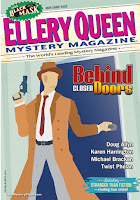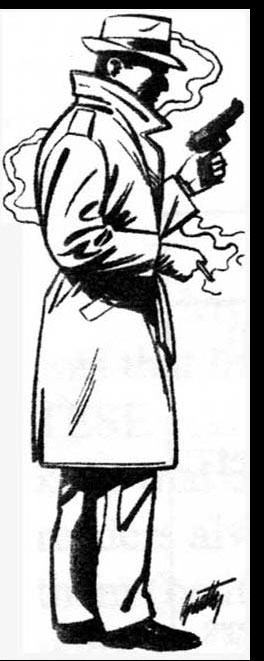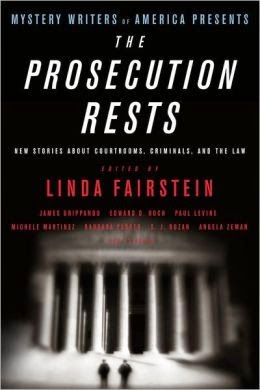Let’s not bury the lede: R.T. Lawton received the Edgar Award for Best Short Story at this year’s Edgar Awards ceremony in New York City. His first nomination resulted in his first win.
I also received my first Edgar Award nomination this year, for a story co-authored with James A. (Andrew) Hearn, and, unlike R.T, this was the first time I had ever attended the Edgar Awards.
 |
| Michael (in his new hoodie) and Temple in Central Park. |
Temple and I spent the prior weekend at Malice Domestic in North Bethesda, MD, rode a bus from there to NYC, and spent the days leading up to the event visiting with friends and getting a whirlwind walking tour of various parts of the city.
New York was unexpectedly cold, and I had not packed a jacket or a sweater. So, as we walked from our Times Square hotel to Central Park on Tuesday morning, I stopped in the first store that had sweatshirts in the window and walked out with a hoodie that I wore constantly until time to dress for the awards dinner Thursday evening.
After our walk to Central Park, we met Ann Aptaker for dim sum in Chinatown and, following lunch, she gave us a walking tour through parts of Chinatown, Little Italy, NoHo, SoHo, and Greenwich Village, ending with a too-short visit to The Strand bookstore.
 |
| Dawn and Andrew Hearn. |
Andrew and Dawn Hearn arrived late Tuesday, so the four of us met for dinner. The next day, Andrew and I had lunch with Elizabeth Zelvin on Restaurant Row while our spouses had high tea elsewhere in the city. That evening Andrew, Dawn, Temple, and I met up with Stacy Woodson for dinner, and the five of us went to the Mysterious Bookshop for the launch of MWA’s latest anthology, Crime Hits Home. I met fellow SleuthSayer Steve Liskow, a contributor to the anthology, at the signing, and also met Otto Penzler and Michele Slung (who have been very good to me as a writer and an editor, selecting my stories and stories from projects I’ve edited for several best-of-year compilations). I also met a few writers I only knew online, and a great many I did not previously know.
The following day was the big event. It began mid-afternoon with a reception hosted by Dell magazines where we met Linda Landrigan, Janet Hutchings, and Jackie Sherbow from Alfred Hitchcock’s Mystery Magazine and Ellery Queen’s Mystery Magazine, and we visited with many AHMM and EQMM contributors we knew or knew of. After a quick change of clothing at the hotel, we attended the pre-Edgar reception for Edgar nominees, drifted out to the general reception, and then headed into the banquet hall for dinner and the ceremony.
 |
| Temple and Michael dressed to the nines. |
The three Edgar nominees published in AHMM—R.T., Andrew, and me—and our spouses sat with editor Linda Landrigan, Brendan DuBois, Chris Begley, and Abby Browning, and anticipation continued to build after dinner as each award was presented, with Best Short Story one of the last few.
When Schrödinger’s Edgar was revealed (see my previous post), R.T. experienced the joy of winning, and it was an incredible moment to watch someone I know receive the award.
That moment was also the culmination of a week spent wallowing in my nomineehood, something I had been unable to do until Temple and I began our trip to Malice Domestic and the Edgar Awards Ceremony. As mentioned in my previous post, real life had prevented me from truly enjoying my brief moment in the sun. But once we began our trip the Thursday before Malice, it began to hit me, and I rode an Edgar-inspired high that I still haven’t completely come down from.
And if I’m still floating on air from the nomination, I can only imagine how much longer it will be before R.T.’s feet touch the ground.
Though the Edgar eluded me, several other good things happened this week:
Nominated for two Derringer Awards, I received one for “The Downeaster Alexa,” published in Only the Good Die Young (Untreed Reads, edited by Josh Pachter).
My story “Dead’s Man’s Gorge” was published in the May/June Ellery Queen’s Mystery Magazine, and my name is on the EQMM cover for the first time.
“Locked Mesa” was published in Mystery Most Diabolical (Wildside Press), the Malice Domestic anthology.



.jpg)
























 Private Eye Writers of America aka PWA
Private Eye Writers of America aka PWA


 Okay, class. You've all heard this before but it's good to remind ourselves over and over about the joys of editing. I used to hate to edit, because it seemed so tedious but once I realized how much better reading my story or book will be with good editing, I hopped on the band wagon.
Okay, class. You've all heard this before but it's good to remind ourselves over and over about the joys of editing. I used to hate to edit, because it seemed so tedious but once I realized how much better reading my story or book will be with good editing, I hopped on the band wagon.




